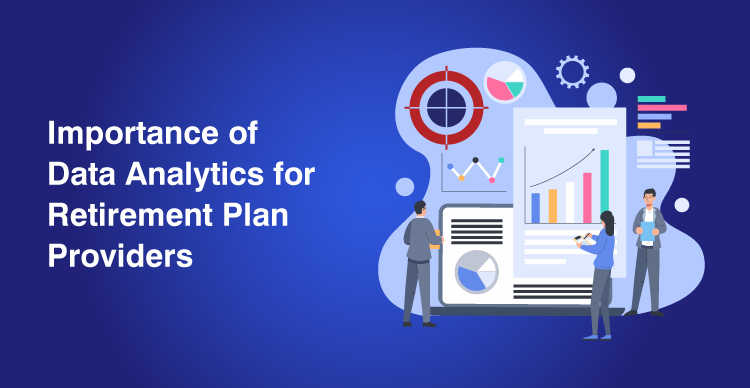
Across businesses and sectors, data analytics, often powered by artificial intelligence (AI), is already powering decision-making, automating and optimizing routine processes and tasks, and increasing productivity and operational efficiencies.
More specifically, data analytics has emerged as a vital strategic tool for retirement service providers, which you, as a planner, can leverage to stay ahead of the pack.
Let’s look at what data analytics brings to the table.
1. Speed
In the retirement plan industry, we know how incomplete data can result in delays, multiple iterations and unwanted time and resources for an administrator. But embedding data analytics into financial applications can address these challenges. Analyzing data from all sources can help you evaluate information immediately and make fast, informed decisions.
2. Visibility
Data analytics can improve predictive and prescriptive financial forecasting processes, which can change how you, as a retirement planner, can present options in finance management to sponsors and participants. This can also serve to increase your customer engagement.
By leveraging data, you can, for instance, send personalized campaigns to participants based on data about their behaviors and characteristics. Data-driven forecasting helps predict customer behavior or project spending, which can help you draw a practical road map for customers as a retirement planner.
3. Unbiased Perspective
There is no human bias when it comes to data. Many manually-run financial forecasting and planning processes suffer from inherent human biases. But embedding technologies such as AI-powered data analytics, machine learning, and algorithm-based machine reasoning can generate more dependable and unbiased outcomes.
4. Engagement
Every customer has their own goals and requirements, and it can be challenging for retirement plan providers to tailor-make plans for each individual. Data analytics can help you with speed and accuracy by recording and leveraging big data through critical touchpoints, including CRM or ERP systems. Being able to gauge customer needs through analytics will empower you to give customers exactly what they want and develop innovative new products or services to meet customers’ changing needs.
5. Cost Optimization
Every business that relies on agile decision-making to stay competitive is most likely using data analytics. By analyzing data on operations, for instance, businesses can detect functions where they need extra capacity and when to improve efficiency. Smart data analysis can cut through the noise, helping managers zero in on the information they need to drive productivity and profitability.
6. Fraud Detection
Data analytics can help discover usage trends that point towards suspicious activity. This can help to reduce fraud and thwart cyber threats. For instance, data analytics can help build thresholds for normal customer behavior and any pattern outside the norm can be red-flagged. This can help proactively mitigate risk. This is especially important in financial services such as retirement plan management, where fraudulent activity can result in significant losses to finances and reputation.
Data analytics is vital to drive effective decision-making, improved CX, and high efficiency. Talk to us about leveraging data analytics as a plan provider to help you build a competitive edge.
